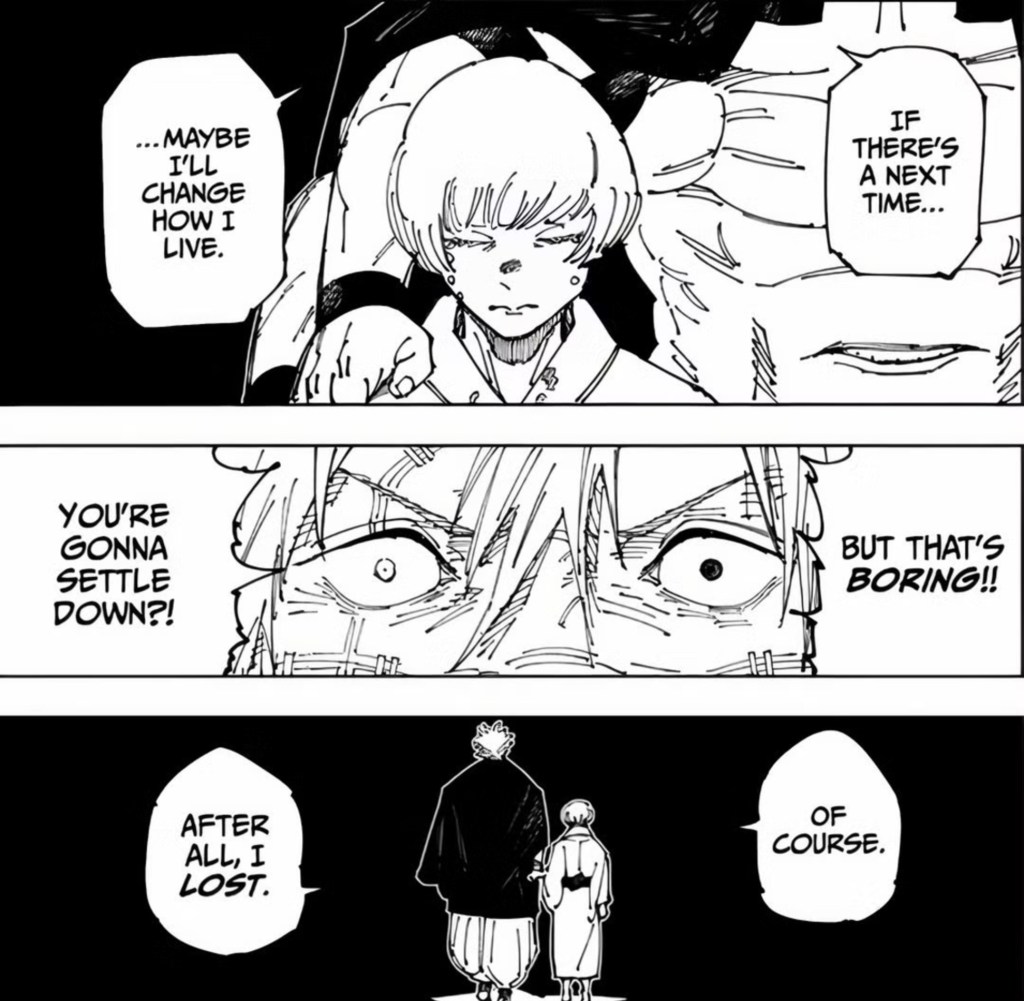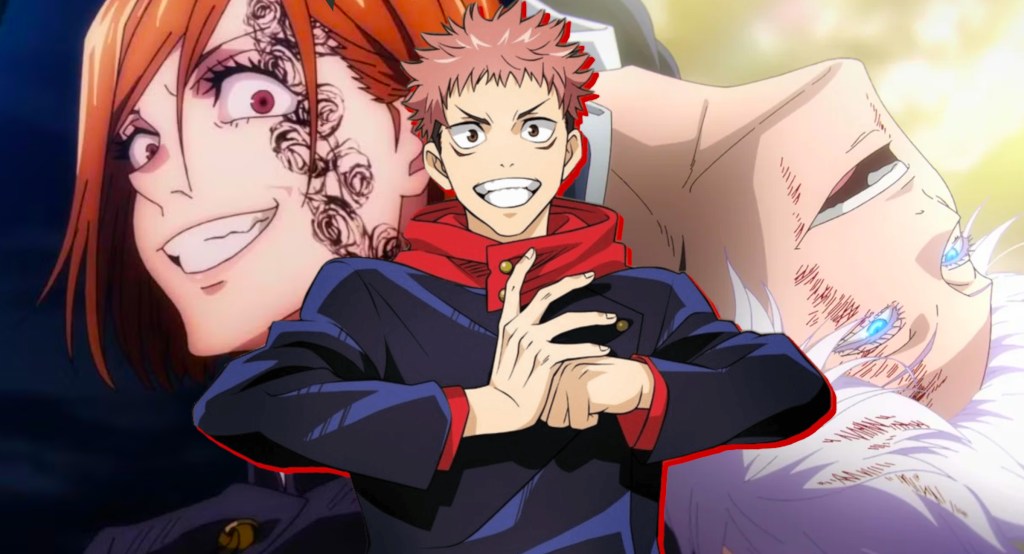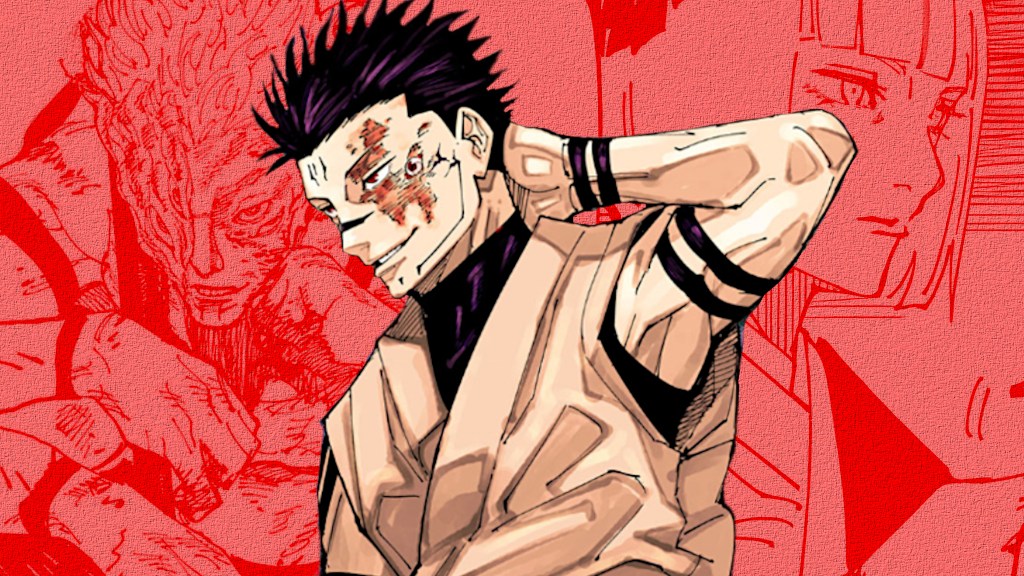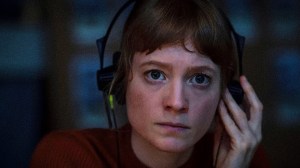Jujutsu Kaisen had many things going for it in its 8-year run that crowned it as this decade’s biggest manga, without a doubt. There are many things the series is renowned for, such as the incredible action and fights, deeply complex and explored power system to the masterful characterization, but there is one aspect of the story that it is by far the best at, and most international fans might not be able to fully grasp its brilliance.
Videos by ComicBook.com
Jujutsu Kaisen, written and illustrated by Gege Akutami, began serialization in Weekly Shonen Jump in March 2018 and is expected to conclude in 2025. The story follows Yuji Itadori, a high school student who becomes a jujutsu sorcerer after ingesting a powerful cursed object—the finger of Sukuna, a legendary curse. He joins Tokyo Jujutsu High to fight curses and protect humanity while navigating dark secrets and intense battles. With more than 100 million copies in circulation and much more to come, the series has solidified itself as one of Jump’s greatest.

Gege Akutami’s Mastery of Japanese Is One To Behold
One thing that many translators and Japanese fans have said about Jujutsu Kaisen is how complex and interesting Akutami’s use of the language is. This is probably why many fans dislike the official English translation by John Werry, as they feel like what was being conveyed wasn’t transferred over. While most manga do end up getting lost in translation, Jujutsu Kaisen was particularly notorious, no thanks to Akutami’s expertise with words. In fact, the voice actors of Choso and Yuji did talk about how difficult Jujutsu Kaisen‘s Kanji can be.
The way he plays with different styles of dialogue across different eras in Japan, occasionally using difficult-to-understand Kanji, integrates poetry effortlessly and makes playful references to folklore and contemporary culture is one to behold. The series also expects some familiarity with Japanese history to understand it. For example, Jujutsu Kaisen makes a lot of callbacks to the Heian and Meiji eras, and while international fans might consider it a flaw not to expand on this, Japanese fans do not need further information because they know those periods of time and can understand the references. Sukuna is also an interesting character, as his manner of speaking and dialogue is very ancient, and he uses vocabulary from past eras, nailing the depiction of him as a living legend.
RELATED: Jujutsu Kaisen’s Final Volume Solves a Major Misunderstanding About Sukuna

Akutami Is Rivaled By Few In Dialogue
Jujutsu Kaisen‘s greatest strength and one of its most praised aspects is how brilliant the dialogue, narration, and interactions are. Akutami’s masterful weaving of prose and poetry makes the series a treat to analyze and dissect, and the rich colloquy between the characters makes them truly human-like and realistic. It’s rare for a shonen to balance existential weight with a slick character voice this well. Akutami doesn’t waste words—when a line hits, it hits.
The layered characterization the series manages to achieve very efficiently is incredible, as Akutami can give an insight into a character’s personality almost immediately with the fewest of words. For example, you can tell Gojo is arrogant and confident within seconds of his introduction based on his relaxed tone despite seeing his student bloodied and fighting for his life. Nobara’s tomboyish attitude, while also leaning into her femininity, was something that was understood from the beginning.
Another very unique aspect of Akutami’s dialogue is how philosophically potent it can be. Jujutsu Kaisen is obviously a philosophical story by nature as it discusses the meaning of a good death, the gap between generations, and more topics that one would not expect from a story aimed at 12-year-old boys. In Jujutsu Kaisen, dialogue serves as a vehicle for deep philosophical inquiry, exploring themes like identity, morality, death, and existential choice. Characters don’t just fight—they question the meaning of strength, the value of life, and the weight of their decisions, making the series incredibly rich and introspective.
Jujutsu Kaisen is already an extremely enjoyable and fun manga to read without fully grasping what it’s trying to say, and it’s designed to be digestible for casual fans. However, there lies an even greater realm of enjoyment if fans can take the time to research and try to understand the undertones and subtext the series offers. It has many layers of depth that are basically screaming to be dissected, and anyone passionate enough to engage with the story at a deeper level will surely be rewarded with one of the best manga to come out of the last decade.









